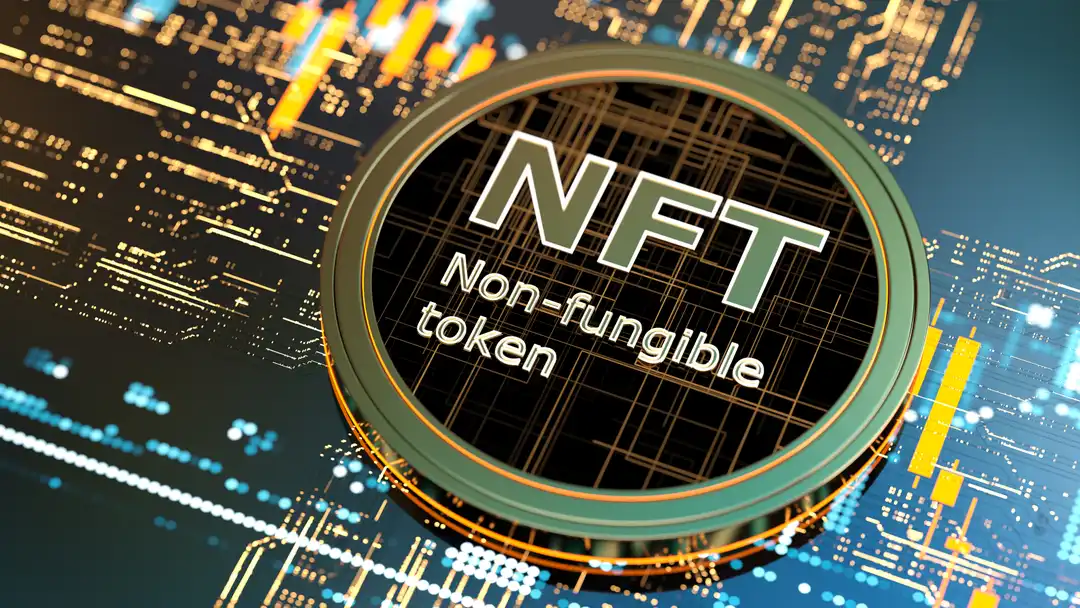In the ever-evolving landscape of digital assets, Non-Fungible Tokens (NFTs) have emerged as a revolutionary force, transforming the way we perceive and trade digital content. If you’re new to the crypto scene, NFTs might seem like a complex concept but fear not – we’re here to guide you through the basics.
Understanding NFTs
NFTs are unique digital assets that use blockchain technology to verify ownership and authenticity. Unlike traditional cryptocurrencies such as Bitcoin or Ethereum, NFTs represent ownership of a specific item, often digital art, music, videos, virtual real estate, or other digital collectibles.
NFTs are created through a process called minting, where the asset’s information is encrypted and recorded on a blockchain. This process involves creating a new block, validating the NFT information, and closing the block. The ownership of each NFT is publicly recorded on the blockchain, making it easy to verify who owns the token.
Proof of Ownership
One of the key features of NFTs is their ability to provide indisputable proof of ownership. Imagine owning a rare piece of digital art, knowing that the blockchain ensures your ownership is recorded and cannot be tampered with. This cryptographic proof gives you the confidence that your NFT is genuine and unique.
Let’s say you purchase a limited-edition digital artwork as an NFT. The blockchain records the transaction, linking it to your wallet address. This record serves as your proof of ownership, accessible to anyone who wants to verify the authenticity of the digital masterpiece you now own.
Common use cases
NFTs have a wide range of applications, including:
- Digital Art: Artists can tokenize their work, allowing them to sell it directly to collectors without intermediaries.
- Collectibles: Digital collectibles, such as trading cards or virtual pets, can be bought and sold as NFTs.
- Gaming: In-game items and characters can be represented as NFTs, giving players true ownership of their virtual assets.
- Real Estate: Physical properties can be tokenized, allowing for fractional ownership and easier transactions.
NFT Valuation
The valuation of NFT could be difficult. Valuation difficulties in the NFT market arise from several subjective factors that influence their worth, such as market demand, scarcity, and artistic value. These elements lack clear assessment standards, making it challenging for investors to accurately determine the actual value of an NFT. Additionally, the demand for NFTs can be highly unstable, with prices fluctuating dramatically due to trends on social media or endorsements from celebrities. This volatility complicates the valuation process further. Moreover, NFTs typically have lower liquidity compared to traditional financial assets like stocks or bonds, meaning that during market downturns, investors may find it difficult to locate buyers willing to purchase their NFTs at reasonable prices, which can adversely affect their valuation.
High Volatility
The high volatility of NFTs is another significant concern for investors. Prices can experience extreme fluctuations, with some NFTs seeing their values rise or fall by thousands of percentage points in a very short time. This level of volatility poses a substantial risk of financial loss. The NFT market is also heavily influenced by investor sentiment; excessive optimism or pessimism can lead to drastic price changes, making valuations even more unstable. Furthermore, the volatility of NFTs is often correlated with other cryptocurrencies, such as Bitcoin, meaning that when the broader crypto market declines, the value of NFTs may also suffer, exacerbating their volatility.
Legal Considerations
Intellectual Property Rights:
Ownership vs. IP Rights: Ownership of an NFT does not automatically confer ownership of the underlying intellectual property (IP) rights associated with the digital asset. Unless explicitly stated in the smart contract, the original IP rights remain with the creator or rights holder. This means NFT owners may not have the rights to reproduce, distribute, or create derivative works from the associated content
Infringement Risks: NFT creators must ensure that their digital content does not infringe on existing IP rights. Using copyrighted material without permission can lead to legal disputes. The nature of the content—whether it involves art, text, or other forms—determines potential infringement risks. Additionally, unauthorized use of confidential information may lead to trade secret violations.
Regulatory Landscape:
Lack of Specific Regulation: Currently, NFTs are not specifically regulated, resulting in a legal vacuum that leaves creators and investors vulnerable to risks such as money laundering and fraud. However, regulatory bodies are beginning to address these issues, particularly concerning anti-money laundering (AML) requirements and securities law.
Securities Law Considerations: Some NFTs, especially fractionalized ones that allow joint ownership, may be classified as securities under U.S. law based on the Howey Test. This classification imposes stringent regulatory requirements on sellers, including disclosure obligations.
Data Storage and Security:
Storage Risks: NFTs typically link to digital assets stored separately from the blockchain. If the server hosting the digital file is compromised or deleted, the NFT may lose its value. Legal clarity regarding ownership rights in such scenarios remains limited.
Privacy and Consumer Protection:
Privacy Violations: Collecting personal data from NFT buyers without consent can lead to privacy law violations. Creators must be vigilant about compliance with data protection regulations.
Taxation and Compliance:
Tax Implications: The sale and transfer of NFTs may have tax consequences that vary by jurisdiction. Understanding local tax laws is essential for both creators and buyers to avoid unexpected liabilities.
Disclaimer: The content contained herein is for informational and educational purposes only. Virtual asset prices are subject to high market risk and price volatility. The value of your investment may go down or up, and you may not get back the amount invested. You are solely responsible for your investment decisions, and we are not liable for any losses you may incur. You should only invest in products you are familiar with and where you understand the risks. You should carefully consider your investment experience, financial situation, investment objectives and risk tolerance and consult an independent financial adviser prior to making any investment. Past performance is not a reliable indicator of his/her future performance. Content on our platform does not contain advice or recommendations. This material should not be construed as financial/investment advice.

